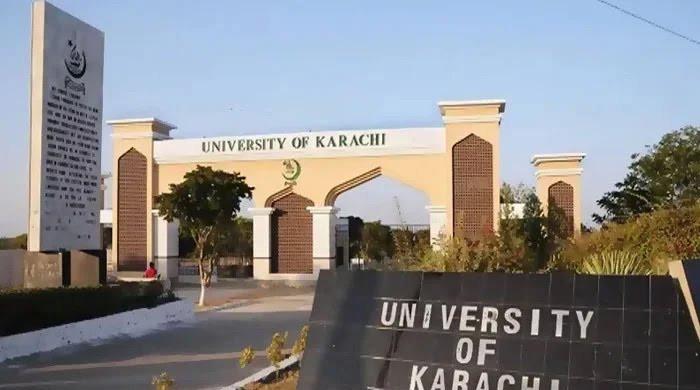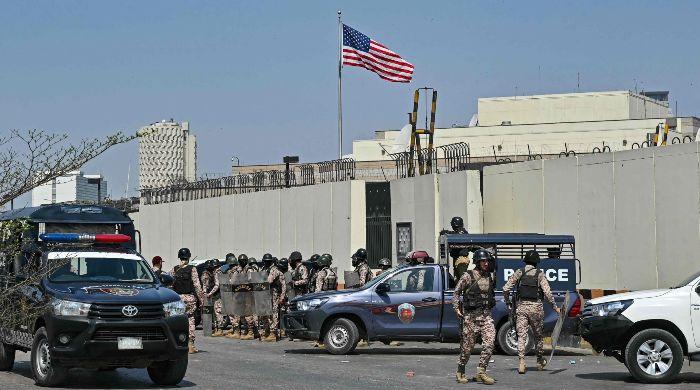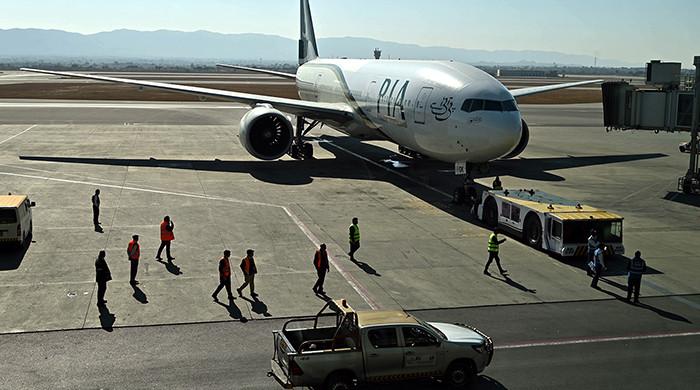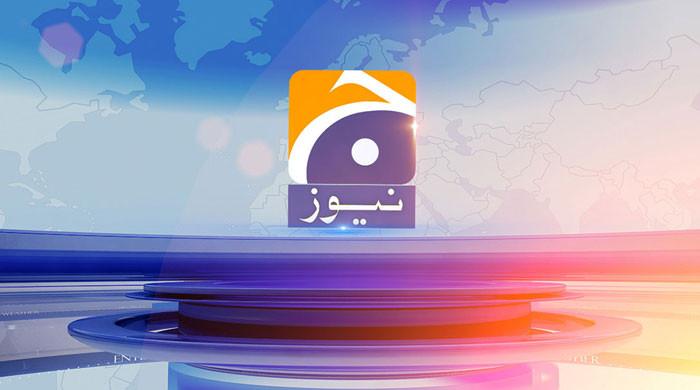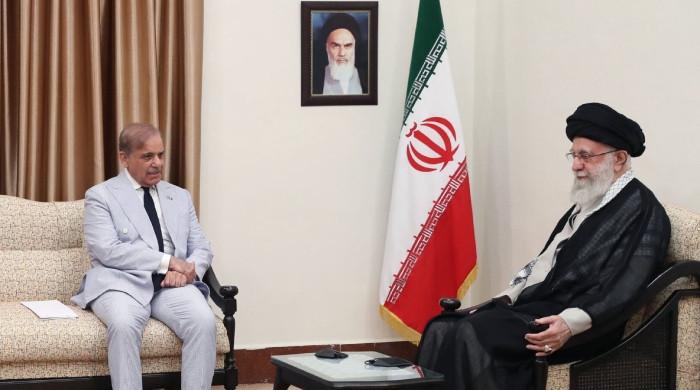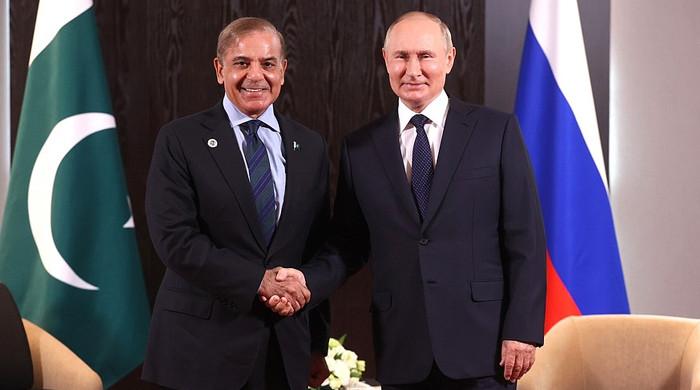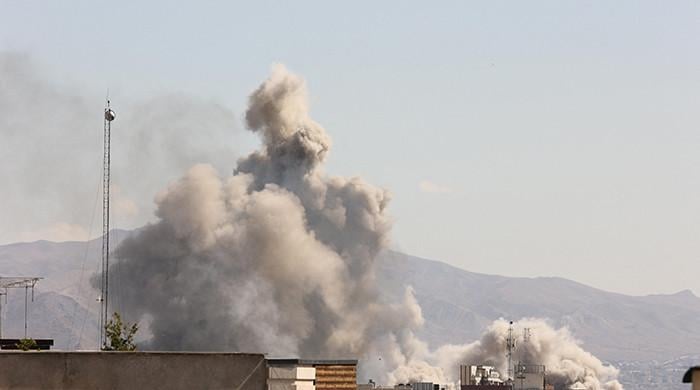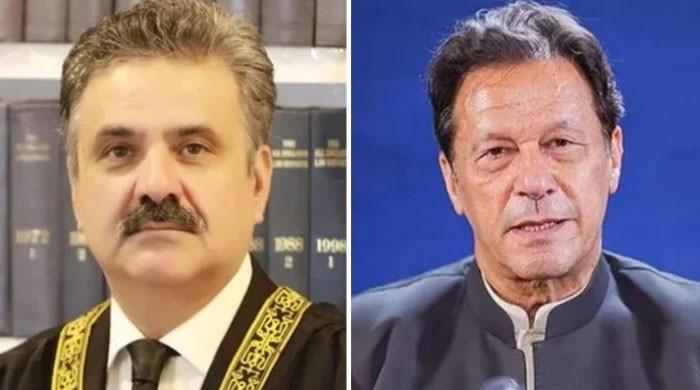In Pakistan's fight against COVID-19, social media disinformation limits success
While Pakistan has till now been spared a nightmare like India's, success still depends on a vaccination programme that still doesn't find many takers
June 12, 2021
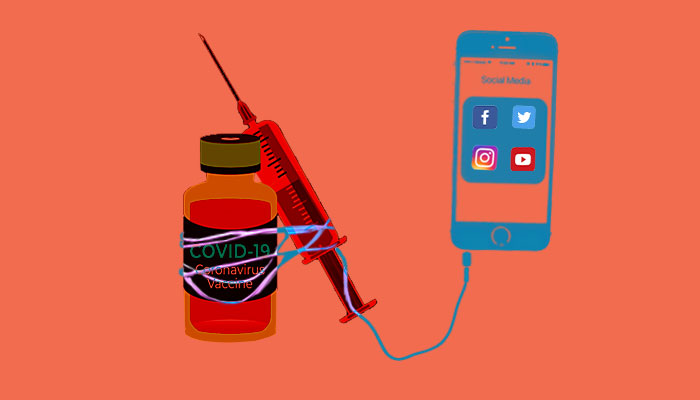
On May 12, people waiting their turn to get vaccinated against coronavirus at Karachi’s Expo Centre were informed that whoever had turned up for their first shot would be given the AstraZeneca vaccine, as the Sinopharm vaccine was not available anymore.
The announcement sparked a panic.
“It made everyone a little anxious. Many left after arguing about the blood clotting issue [associated with the AstraZeneca vaccine],” Noreen Shams, a freelance journalist, whose relatives had gone to get the jab, related to Geo.tv.
This was not a one-off incident. Other citizens (some waiting for their turn to be invited for vaccination) reported receiving forwarded voice notes and messages from family and friends warning against getting a vaccine at the Expo Centre — the largest vaccination centre set up by the Sindh government in the province — for fear they would be administered the AstraZeneca shot.
Read more: Pakistan's three-pronged strategy for vaccination
The alarmist messages drew on a toxic mix of general public distrust in the competency of government-run health facilities, anti-vaccination conspiracy theories and hysteria, as well as half-truths about the risks of the AstraZeneca vaccine in particular.
‘One of the best’
Despite the scary sounding side effects, health experts and regulatory authorities around the world have emphasised that the risk of clotting remains extremely low while the AstraZeneca vaccine is highly effective in preventing COVID-19 deaths and severe disease.
Read more: No, you don’t need a COVID-19 antibody test after vaccination
University of Health Sciences Vice Chancellor Dr Javed Akram, a member of the Scientific Task Force on coronavirus rebuffed the rumours, saying the AstraZeneca is one of the best vaccines available.
“Efficacy wise it has a good protection and its protection from disease among most of the population is 80% and it provides 100% safety from serious illness.”
The Oxford-developed vaccine has been declared safe by the European Medicines Agency in April 2021. “The benefits of [AstraZeneca] outweigh its risks in adults of all age groups,” the Agency noted in its advisory.
In simple words, it is far, far better for everyone to get the shot than not to get it, especially when multiple variants of coronavirus are spreading rapidly.
It is far more likely you will contract COVID-19 without the vaccine than experience the side effects with it, especially if an epidemic is breaking out in your area.
But these rational explanations aside, convincing Pakistan to get vaccinated is already a challenging task.
Making it mandatory
In a country of 220 million, where at least 70 million people (or 70% of the adult population) must be inoculated to achieve some sort of herd immunity, vaccine hesitancy was already at extremely worrying levels even before the AstraZeneca vaccine made it to Pakistan under the COVAX initiative.
Despite having secured 18.7 million doses of COVID-19 vaccines, the government faced such low registration rates for the vaccines that it eventually opened walk-in vaccination facilities for nearly all eligible citizens and made it mandatory for certain groups to get vaccinated.
Read more: Could Pakistan’s vaccine doses expire soon?
Punjab’s Coronavirus Advisory Group Chief Dr Asad Aslam told Geo News earlier in May that people were not taking enough interest in getting vaccinated.
“[Misleading and incorrect] news on social media is hampering the vaccination drive,” he worried.
Social media has been a major cause for anti-vaxxer tendencies among the masses, and the drive to deliver COVID-19 vaccines has been dealt deadly blows by misrepresentations of what vaccines can and cannot do.
Perceptions cost you
Pakistan’s vaccination drive was dealt a major blow when Prime Minister Imran Khan tested positive for COVID-19 just a few days after receiving the first jab of the Chinese-made Sinopharm vaccine.
Visuals of the head of government receiving the vaccine had been televised and promoted massively on media and social media to convince the masses to also take the jab.
When PM Imran contracted the virus, the government machinery had to go into overdrive to counter misconceptions that the vaccines themselves were to blame for the disease.
Health officials and experts rushed to counter narratives and explain that immunity from the disease is not reached till after the second dose is administered, so PM Imran's illness was purely coincidental or a result of a pre-existing infection.
While Pakistani media in general acted responsibly, it was no match for forwarded conspiracy theories shared person to person through social media and messaging apps casting suspicions regarding the efficacy of Chinese vaccines.
The incident had at the time convinced officials to launch a nationwide campaign to counter vaccine misinformation. A budget of Rs1 billion was allocated for this purpose and the Ministry of Information was tasked to launch the initiative. As yet another wave of the epidemic threatened to overwhelm the national response to COVID-19, however, it seems to have fallen by the wayside.
The last public service message on the covid.gov.pk portal was uploaded in July 2020. The official YouTube channel set up for COVID-19 related communication still has only a handful of informational videos. Most of them have been viewed only a few hundred times.
Up until a few days ago, a voice message from National Assembly Speaker Asad Qaiser could be heard on the portal asking people to follow COVID-19 SOPs during the "second wave". Pakistan is now well into its third.
The battle online
A research report prepared by the Center for Countering Digital Hate (CCDH), an international NGO, paints a bleak picture of what is happening in the cyberspace with respect to vaccine disinformation.
According to the report, "anti-vaccine activists on Facebook, YouTube, Instagram and Twitter reach more than 59 million followers, making these the largest and most important social-media platforms for anti-vaxxers."
While the social media companies say they are working with authorities and are contantly removing misleading content, activists argue that the damage has already been done.
BBC's Disinformation and Social Media reporter Marianna Spring, who has investigated the impact of anti-vaccine content online, was quoted in a recent report as saying that young people are more active users of social-media sites and as a consequence are more likely to be exposed to conspiracies and falsehoods online.
While the BBC specialist stressed on the importance of campaigns to counter propaganda, she noted that they may struggle to undo the damage already done by emotive anti-vaccine propaganda to which younger social-media users have been hyper-exposed.
The implications of this for Pakistan — with its disproportionately large young population — are enormous.
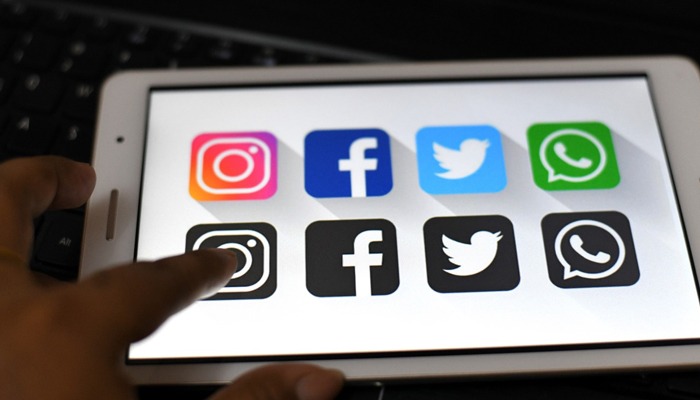
‘Social media disinformation very dangerous’
Pakistani health and digital media experts are not sold on the government’s current strategy to deal with the problem.
Talking to Geo.tv, the Pakistan Medical Association's Secretary-General Dr Qasier Sajjad noted that disinformation on social media is “very dangerous” and urged the masses to “believe in science” rather than half-cooked conspiracies.
“Even educated people fall prey to propaganda on social media, which is hampering efforts to vaccinate people,” he cautioned.
The PMA official pointed out to Geo.tv that even healthcare workers were initially “reluctant” to get the vaccine due to widespread rumours and waited till a large number of people who were not doctors got the jab.
Sajjad insisted that the country “needs a comprehensive public awareness programme” to clear misconceptions, adding: “we need a bombardment of messages on media”.
Read more: Sindh warns against spreading fake news about coronavirus vaccines on social media
“I think the government's strategy lacks steam. They are not making the effort they should have been making. The authorities need to engage artists, religious leaders, politicians, teachers and other public opinion leaders who command influence on the people.”
Asad Beyg, the founder of Media Matters for Democracy, echoed Sajjad’s concerns on the impact of misinformation on overall public attitudes.
"COVID-related disinformation is a global concern and Pakistan is specifically susceptible to it considering our literacy rate," he said.
According to Beyg, there is much room for improvement in the government's response to COVID-related misinformation, especially with regards to vaccines.
“I fear that the existing misinformation may already be fueling anti-vaccine narratives, and there isn't an equal amount of effort in the mainstream media to counter it."
‘Campaign going well’
When asked to comment, Federal Information Minister Fawad Chaudhry defended the government's overall strategy and told this scribe that the government has been disseminating "timely, credible and scientifically correct information through all conventional and unconventional means of communications to sensitise the masses."
“A comprehensive communications strategy is being rolled out jointly by the National Command and Operation Centre (NCOC), ministries of health and information as well as the ISPR and the federating units, keeping in view the ongoing trends and phases of the vaccination drive,” he added.
He emphasised on the need for a joint response from the country's political leadership, saying it is not only useful but absolutely critical to have national solidarity to tackle this serious crisis.
“The political leadership has to be seen as playing a preventive role against the pandemic," he urged.
On whether the government has approached social media companies in this regard, the minister said they are "partnering with everyone".
While the minister says they have been responsible in their messaging, it is important to note that in initial days of the pandemic, some of the most damaging claims about COVID-19 came directly from the government functionaries, like "it is just a flu" or "drink hot water" to beat the virus.
Separately, Special Assistant to the Prime Minister on Health Dr Faisal Sultan rejected reports that the vaccination plan is not achieving the desired results.
“Broadly, we want to get nearly over 50 million, up to around 70 million persons vaccinated by end of the year. A focus area is to get the majority of the dense urban populations vaccinated as a priority within the above number,” he said.
Sultan stated that, so far, the campaign is going well (213,000 vaccines delivered per day a few days ago) but needs to be ramped up to over half a million a day.
Read more: Combating misinformation in the digital age in Pakistan
The best intervention
Chief of the Infectious Diseases Department of the University of Maryland, Upper Chesapeake Health, Dr Faheem Younus, who has been busting myths regarding COVID-19 and vaccines and fighting disinformation online, is of the view that disinformation is a global problem.
Dr Younus is globally recognised as a credible voice on COVID-19 related matters.
In an exclusive interview with Geo.tv, Dr Younus said: “Since March 2020, when the pandemic spread globally, I started sharing my knowledge on Twitter to clear misconceptions people had.”
If used effectively, he believes social media can be a powerful platform.
“In March 2020, my tweets were read by more than 40 million people globally, so I realised that Twitter was a powerful tool. We could save lives by educating people.”
He noted that people change their practices once provided with good, data-driven information.
“So yes. The effort is worth it.”
“One of the most important interventions any government can make is timely, accurate and repeated communication," he said, adding that answering people’s questions in real-time is critical.
This is not easy, however, and those challenging widespread rumours often get attacked on social media.
“Unfortunately, the virus has been politicised in many countries. People have trouble accepting a different view without linking it to their politics. If you question, for example, low testing, some people take it as a criticism on a party or a government — it is not.
"I am trying to avoid such [politically sensitive] areas. I do not want a public health message to fall on deaf ears. [But] yes, at times you have to call people out.”
“The ignorance is global and no matter whether it is the US or any other country, disinformation is affecting [us] equally," Dr Younus said.




